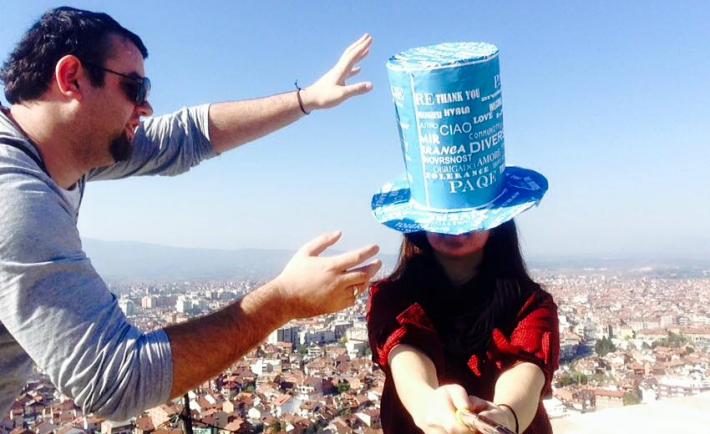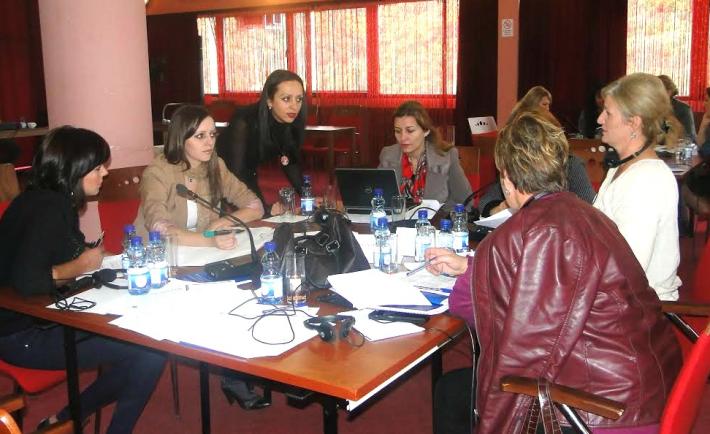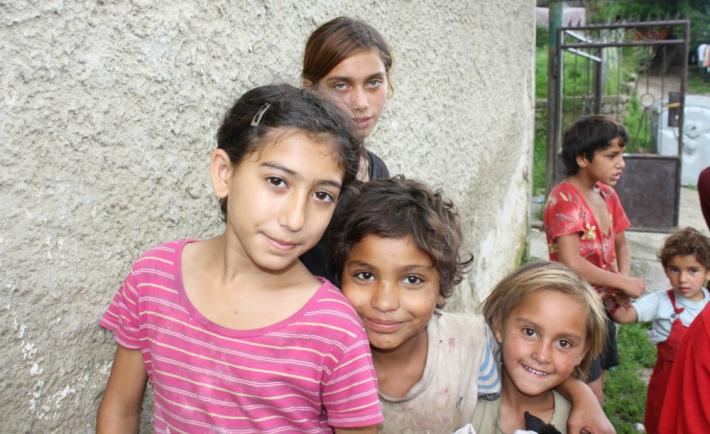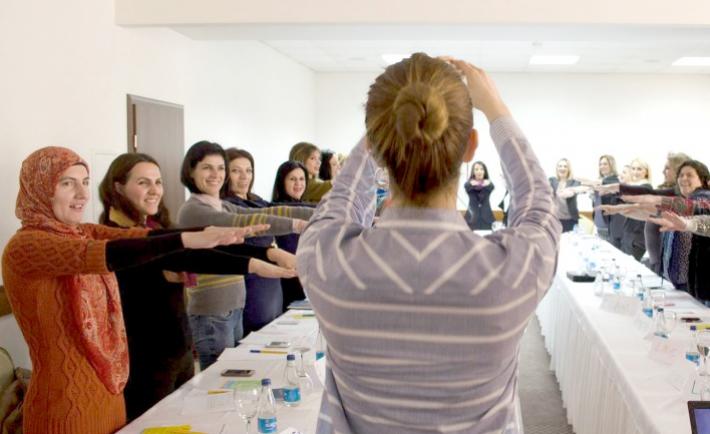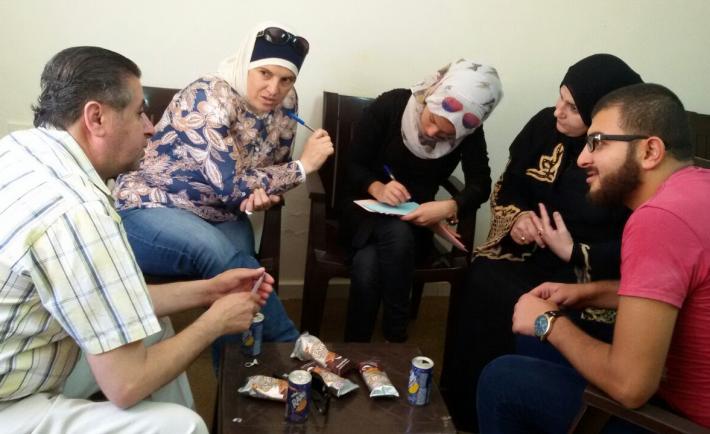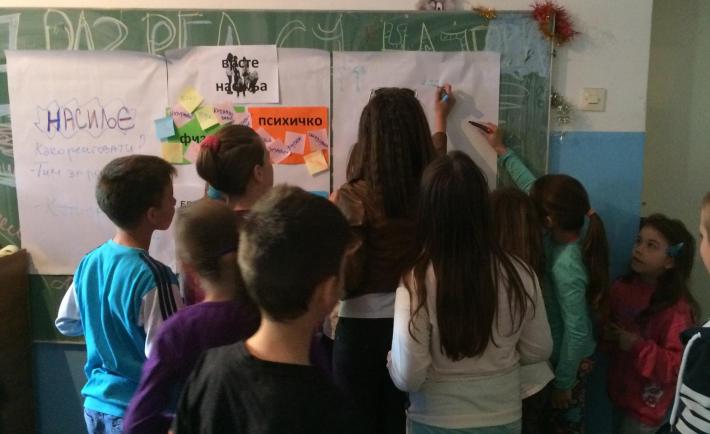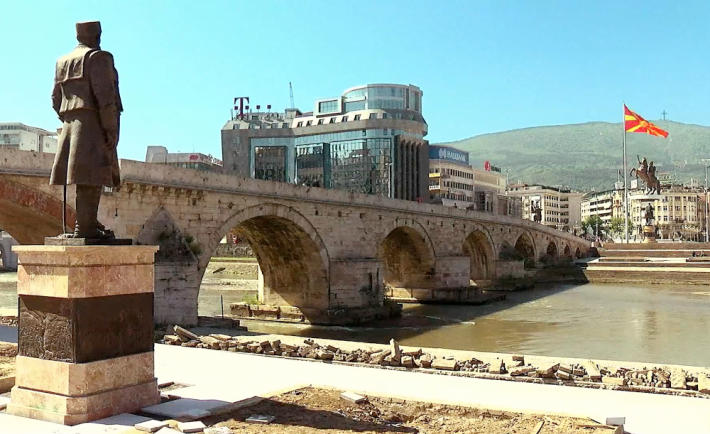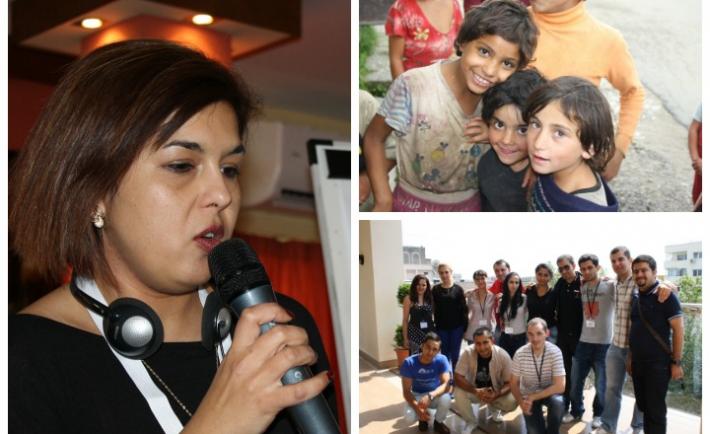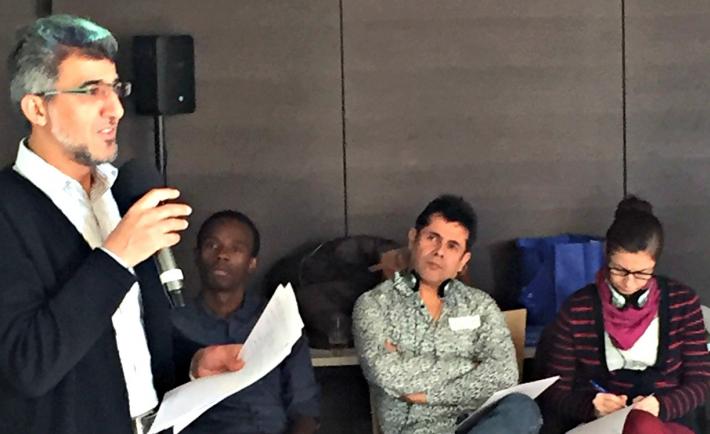
Muslim in faith, Czech at heart: Muneeb leads fellow participants from the Czech Republic and Slovakia at a recent NDI gathering on joint responses to growing religious and ethnic intolerance
Muneeb has a quiet reserve that gives way to a beaming smile when you ask him about his work and life. A long-time resident of Brno, the capital of the Moravian region of the Czech Republic, Muneeb’s English is halting, so he is quick to turn to Czech, his everyday language for three decades. Muneeb is married, a father, and runs the Czech Center for Muslim Communities. He reserves his native Arabic for family and spiritual matters.
For Muneeb and other longtime residents of Muslim faith—many if not most Czech citizens—the refugee crisis has lifted the curtain on some unpleasant realities. The unprecedented wave of humanity from the greater Middle East has elicited sympathy and aid from many quarters of Czech society. But many express fear about what the presence of foreigners means for their safety and identity—although few if any refugees have actually set foot on Czech soil, much less settled there.

